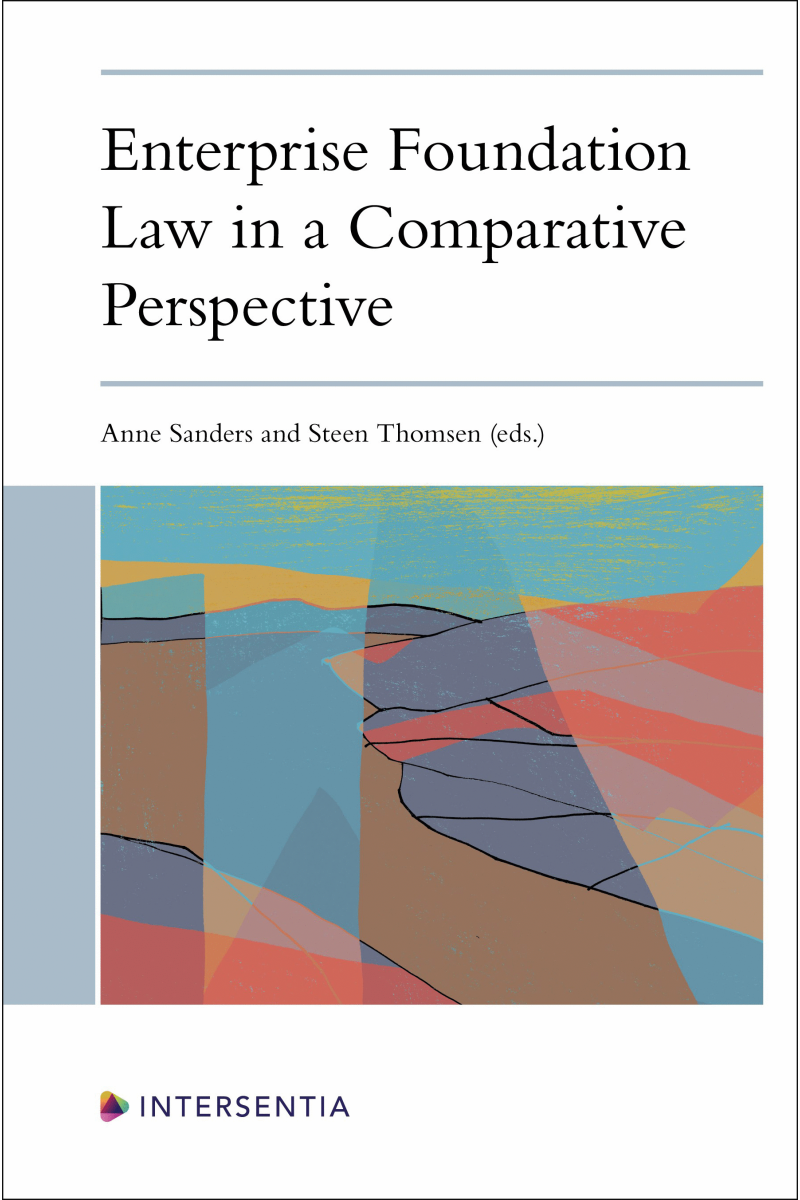 maestro
mastercard
visa
maestro
mastercard
visa

Enterprise Foundation Law in a Comparative Perspective

Enterprise foundations are foundations which own companies. The term is not widely known, but many will recognize the names of companies like Bosch, Bertelsmann, Carlsberg, Hershey, Rolex, Investor or Tata Sons, which are owned by foundations or equivalent entities – stiftungen, trusts, fonde, stichtingen etcetera – whose names reflect their legal and national origins.
Although enterprise foundations have been around for more than a century, they have recently attracted attention as embodiments of the purpose-driven company advocated by Colin Mayer, the British Academy, the World Economic Forum, George Serafeim and others. Many foundations are non-profits without a personal profit motive, which sets them aside from other corporations. Instead, they are legally bound by their purpose, which is typically to secure the longevity and independence of the companies that they own and to contribute to society through philanthropy. As perpetuities which cannot be dissolved, they are long-term owners. However, not all enterprise foundations are equally idealistic. Some have strong ties to the founding family and continue to support its descendants. Others similarly have ties to the government organizations, cooperatives or associations that helped establish them. This book will delve into the motivations and circumstances resulting in these fascinating divergences.
Enterprise foundation law differs greatly around the world. Very few countries, like Denmark, have codified civil and tax law on the topic. Some – such as, until recently, the US – have effectively banned them. Others, like Germany, seek to limit foundation involvement in the underlying businesses. The tax treatment of foundations also varies considerably. Clearly there is much to be learned by mapping and analyzing the diversity here.
This book provides an overview of enterprise foundation law in six European countries - Germany, Austria, Sweden, Denmark, Switzerland and Italy - which all host a number of important foundation-owned companies. A chapter on the US discusses to what extent enterprise foundations are permissible in the US. The book provides answers to the following questions on the subject:
- Does foundation law allow enterprise foundations? If yes, with what qualifications?
- Are enterprise foundations commonly used? What are the reasons for their popularity or lack of it?
- What rules are in place regarding the purpose a foundation must have? Does running an enterprise alone suffices as a purpose for a foundation?
- Does the law impose specific rules on foundation governance?
- Are enterprise foundations subject to supervision by a public body?
- To what extent are foundation enterprises favoured by the tax system?
This book is written by prominent law professors from seven different legal systems. A final, concluding chapter compares foundation law in the seven nations. Although all countries permit enterprise foundations in some forms, Enterprise Foundation Law in a Comparative Perspective demonstrates that great differences can be found in the relevant civil and tax laws, which influence their prevalence and governance.
About the authors
Prof. Dr. Anne Sanders, M.Jur (Oxon) holds the chair for Civil law, Company law, the law of Family Businesses and Judicial Studies at the University of Bielefeld, Germany. She is co-director of the Institute for Family Businesses at the University of Bielefeld (IFUn) and Professor II of the faculty of law of the University of Bergen, Norway (2021-2025). She focusses her research on purpose driven organisations such as foundations, companies and steward owned businesses which are included in the 2021 coalition agreement of the German government.
Steen Thomsen, professor, Ph.D., is Novo Nordisk Foundation Professor of Enterprise Foundation Governance at Copenhagen Business School (CBS). He specializes in enterprise foundations and corporate governance as a teacher, researcher, consultant, commentator and practitioner. His publications include more than 30 international journal articles and 5 books on the subject. Steen has served as a board member in several business companies and is currently a founding board member of Boardmeter (which provides software-based board evaluations), the Pluto Foundation (which works to promote biodiversity around the world) and the Finn Nørgaard Association (which seeks to prevent terrorism by social inclusion).
| Type of product | Book |
|---|---|
| Format | Paperback |
| EAN / ISSN | 9781839703065 / 9781839703638 |
| Weight | 363 g |
| Status | Available |
| Number of pages | xiv + 254 p. |
| Access to exercice | No |
| Publisher | Larcier |
| Language | English |
| Publication Date | Mar 7, 2023 |
| Available on Strada Belgique | No |
| Available on Strada Europe | No |
| Available on Strada Luxembourg | No |
Downloads
- Table of Contents and Preliminary Pages
Anne Sanders, Steen Thomsen - Enterprise Foundation Law: Introduction
- Foundation Ownership Around the World
- Enterprise Foundations in Germany
- The Austrian Foundation
- Swiss Enterprise Foundations: Overview and Current Challenges
- Enterprise Foundations in Sweden
- Denmark: Enterprise Foundations
- Industrial Foundations under Italian Law
- Are Enterprise Foundations Possible in the United States?
- Enterprise Foundation Law in a Comparative Perspective: Concluding Observations
- Index